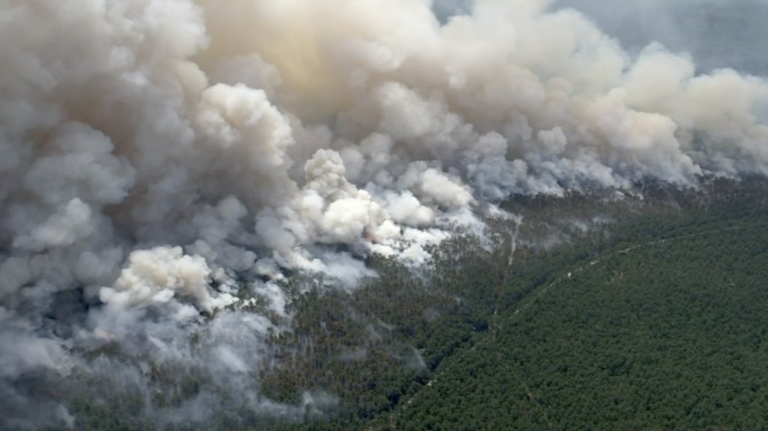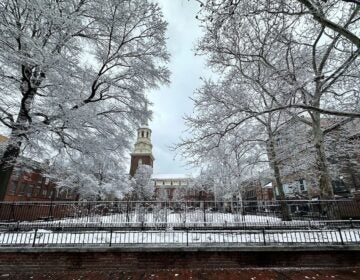Delaware bans bonfires, encourages residents to conserve water
The decision comes following weeks of record low rainfall, making the state abnormally dry.
Listen 0:56
A large brush fire at Wharton State Forest on Friday, July 5, 2024. (6abc)
This story is part of the WHYY News Climate Desk, bringing you news and solutions for our changing region.
From the Poconos to the Jersey Shore to the mouth of the Delaware Bay, what do you want to know about climate change? What would you like us to cover? Get in touch.
Delaware has banned open burning, including bonfires, ahead of the fall season.
The decision comes following weeks of record low rainfall, making the state abnormally dry. September was one of the driest months on record, and there’s little to no rain expected over the next two weeks.
The ban on open burning aims to reduce the risk of fires in Delaware.
The state is also asking residents to conserve water, particularly in New Castle County, where residents rely on streams and reservoirs for their water supply.
Still, Delaware officials say reservoirs and aquifers are currently in good shape as water demand declines in the fall. Since the last severe drought in 2002, more than 2 billion gallons of water reserves have been built, according to the Delaware Department of Natural Resources and Environmental Control.
“While the state’s water supply remains strong and sufficient, it is extremely important for residents in northern Delaware to take steps to conserve water in whatever ways they can to help offset the lack of rainfall,” said DNREC Secretary Shawn Garvin in a statement. “This will help maintain existing water supply levels should we face more painful drought conditions. Since surface water is the main source of drinking water in the northern part of the state, taking preventative steps now will help to avoid potential supply issues later.”
The drought has led to some crop losses, and in some cases prevented crop growth.
“Some corn was mowed down without running a combine through it. Presently some soils are so dry that cover crops and small grains that are being seeded do not have enough moisture to germinate,” said Don Clifton, executive director of the Delaware Farm Bureau, in a statement. “These crops are important to help retain nutrients thereby protecting groundwater and surface waters. If they can’t be established, we lose that ability.”
Meteorologists are expecting a La Niña to develop this winter, which often means warmer and drier conditions in the region.

Get daily updates from WHYY News!
WHYY is your source for fact-based, in-depth journalism and information. As a nonprofit organization, we rely on financial support from readers like you. Please give today.






